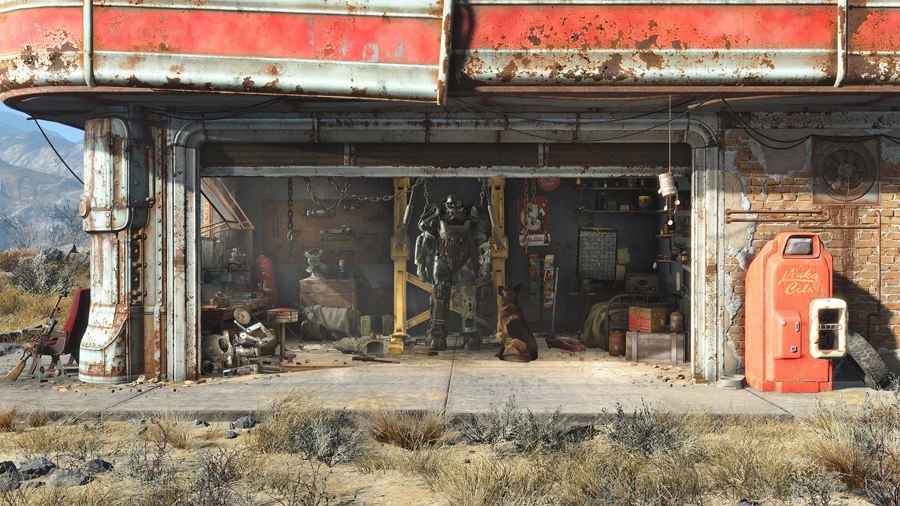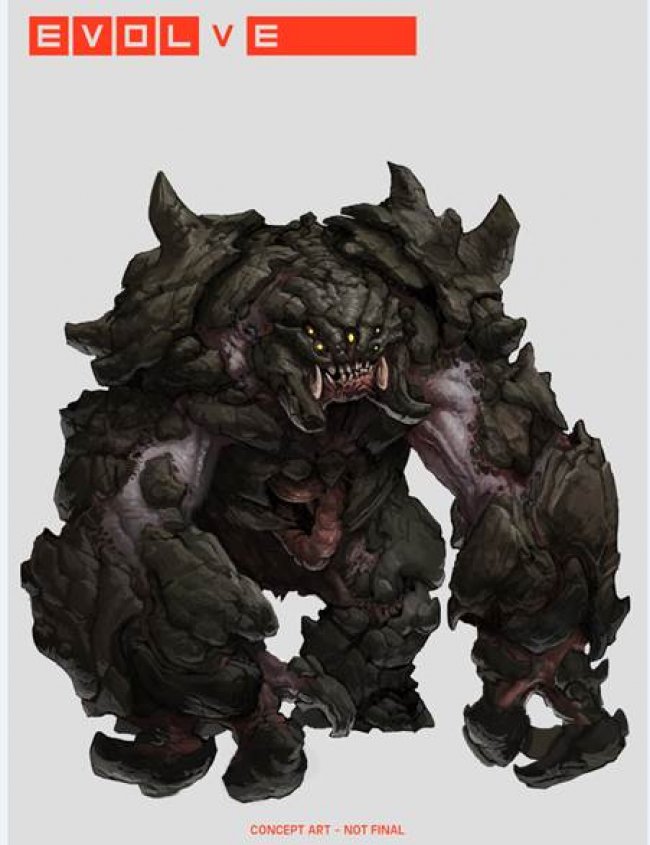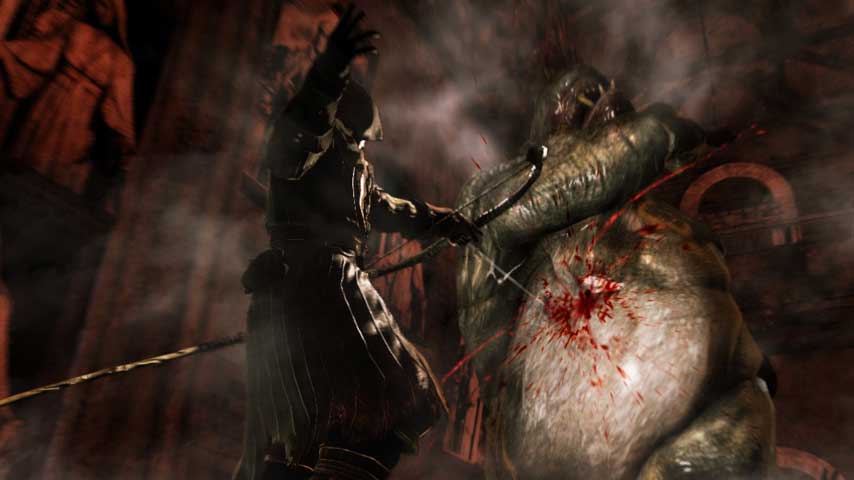



I've spent the last two years watching with the passivity of a mountain-top guru while a certain kind of gaming popped into existence: Kinect, and all the motion sensing stuff that followed. The "you are the controller" spiel of its campaign has always left me cold, and that's even after the effort from its marketing team to turn it into a kind of rally cry for anyone disenchanted with the "old style" of play. Am I bothered with being a controller? I don't know, but having seamless control over my actions is another story. I'll now admit there's a spark of something in that line. Somewhere deep in its belly is a really good idea, and the philosophy behind it can be glimpsed in some of the biggest RPGs coming out.
Liberating yourself from your avatar - that's the idea. Because in RPGs, no matter how much of an emotional attachment you have to your Shepard of Mass Effect or your Hawke of Dragon Age 2, the way users will experience a game is defined the moment the character is created. It's the classes that put a limit on just how far you can experiment with gameplay; that's the argument we're seeing bubbling to the surface of titles coming out over the course of this year and next - Skyrim, to name but one.
Generally speaking I honestly like pre-defined classes. They make sense to me on a deep, animal level. Usually in RPGs I'm inclined to play as a Mage. I'm a Mage because I'm a good Mage - I'm a good Mage, because I always play a Mage. But something is changing in the waters of development, all because of some of the inherent difficulties that stem from the limitations of playing just one class.
It means your grip on a character - your ability to thoroughly control all aspects of him - is capped at a certain point. The means by which I fight are limited to what's been pre-defined to work best for my class; my weapons and armour are limited too, for the same reason. And if I decide that spellcasting just isn't the way to go, I end up forced to re-roll and start again from scratch.
It's telling that Skyrim has dropped traditional classes altogether: It's an imperfect system for anyone who wants to completely mould their character in the way they see fit.
For a genre whose bread and butter lies in being immersive, this kind of full-on control is like watching a developer eagerly try to prove a point: Yeah, this here is role-playing. Breaking from the restrictions imposed by a game, that's role-playing. Erasing the lines between where you stop and the character starts – that's role-playing.
This time around, the design philosophy for Bethesda has been to wave goodbye to the pre-sets it gave you at the beginning of Oblivion, and hello to the possibility of playing any class types, simultaneously, with both hands. One hand can be used for melee weapons, one hand can spellcast. The result is a system that lets players decide how they want to play at any point in time.

You'll see shadows of this kind of thinking elsewhere in games due next year. The upcoming Kingdoms of Amalur, which shares the same genetic inheritance as The Elder Scrolls series thanks to a having a lead designer in common, has taken up a similar design stance. Instead of requiring the player to select a playing style they'll be stuck with before the game even begins, Amalur gives you three talent trees, with over twenty abilities in each, to fiddle between and combine. You can also hop between Mage, Rogue, Warrior, and Ranged archer stances at any point, allowing you to mould your character even when you're mid-way through the game.
Hell, even Blizzard is loosening its grip around players. I've written before about Diablo III and its loosey-goosey approach to skill-sets. The game lets you experiment with all available abilities at any point, meaning you can experiment with your character's build literally on a fight-by-fight basis.
RPGs are starting to adopt this sensibility more and more as one of the first true ways of letting a user slip fully into their character. The urge to perfect a single class will always be in the blood of its fanbase, but there's something to be said for systems whose principle design lets players be their character – a character who can change as often as his creator's mind.




 New Super Mario Bros. U Guide: Star Coin Locations in Acorn Plains
New Super Mario Bros. U Guide: Star Coin Locations in Acorn Plains Review: Command & Conquer: Tiberian Sun
Review: Command & Conquer: Tiberian Sun Cliffwalker's Examination of Morrowind, Oblivion, and Skyrim
Cliffwalker's Examination of Morrowind, Oblivion, and Skyrim Minecraft Mod Examination: Zombie Awareness
Minecraft Mod Examination: Zombie Awareness Top 5 best Tower Defense Games for PC 2014
Top 5 best Tower Defense Games for PC 2014